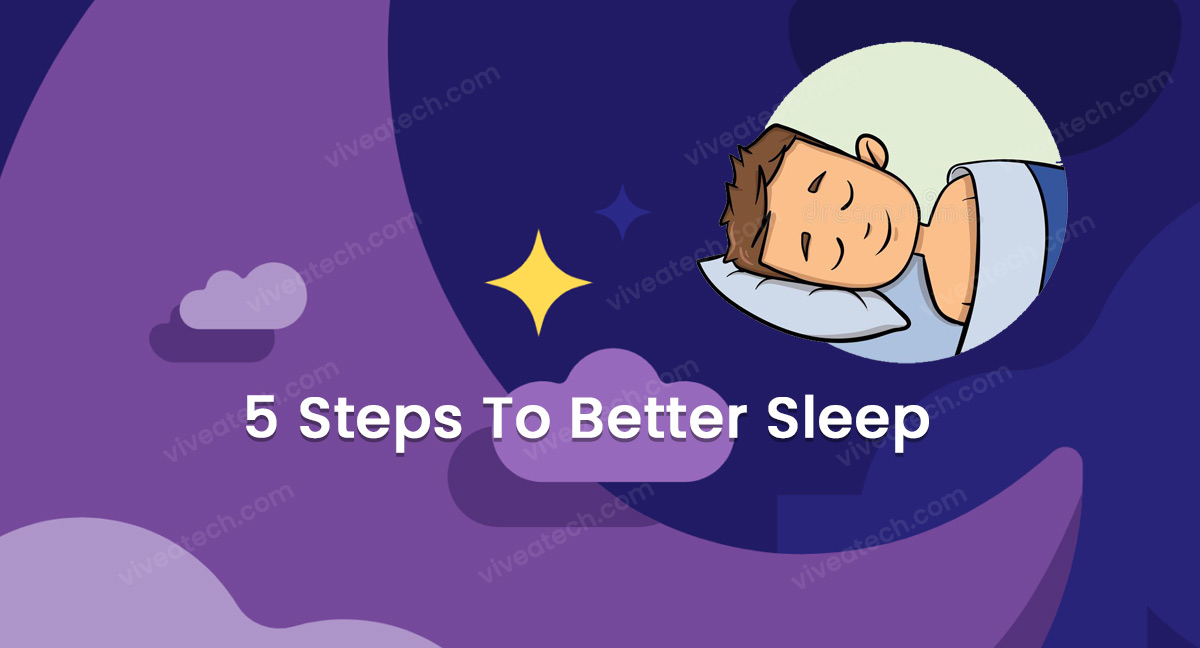
5 Steps To Better Sleep | How To Sleep Better
If you encounter sleeplessness in the form of onset or terminal insomnia or both, you may be able to treat yourself with the mention remedies.
1. Avoid Nicotine, Caffeine, and Alcohol
Nicotine is a powerful stimulant. It’s also addicting, and it carries harmful tars and other impurities causally linked to lung cancer and other life-threatening diseases. You’re clearly better off without it. try to avoid smoking within a few hours of bedtime. Caffeine is also a powerful and physical effect, present in coffee and cola, of course, but also in chocolate and aspirin tablets and lots of other less obvious sources. Caffeine reaches its peak effect about four hours after you ingest it, so that after-dinner coffee at eight may be hurting your sleep at midnight. Alcohol is certainly not a stimulant. In fact, it’s a powerful depressant. It just doesn’t feel that way, because the first thing it unhappiness is our inhibition. But it still belongs on the shortlist of sleep disruptors. That shot at bedtime may help ease you into sleep, but alcohol blocks your descent into a deep and restful sleep.
2. Keep Regular Meal Times
Try to eat at approximately the same times each day, and avoid eating too close to bedtime. Digestion is a very active process and may come in between relax and fall asleep. Nutritionists chime in with the advice that we will process and use nutrients most efficiently by eating the big meal in the morning and then tapering off during the day and by eating several small meals rather than two or three large ones. However you refuel, regular habits will benefit healthy sleep.
3. Stick to Regular Bed and Rising Times
A regular sleep schedule getting up and going to bed at approximately the same time each day will help fighting insomnia. That means seven days a week. If you tend to follow one schedule during the workweek but depart from it extremely for weekends, you may well have trouble falling asleep Sunday night and even more trouble dragging yourself out of bed Monday morning. Folks who work split shifts have an incredibly high incidence of insomnia. The constant disruption is just too hard for most of us to adjust to.
4. Exercise Regularly
People who work out regularly report deeper, more satisfying sleep than their more sitting brothers and sisters. Exercising on a regular schedule and not within three or four hours of bedtime is best for most of us. All of this regularity may seem downright boring. But if you are having trouble sleeping, some adjustments here may enable you to solve the problem without drugs or other therapies. But whatever you do, experts agree.
5. Don’t Worry About It
There is nothing worse than lying awake thinking about how awful it is that you are not sleeping, how much you need that sleep, how bad you will feel tomorrow if you do not get to sleep. That is of course, exactly what most of us do when we can’t sleep. Know that the occasional sleepless night is a natural reaction to life’s stresses, and almost all of us will have our share along the way.
If you cannot sleep, examine your life for unusual sources of stress that may be causing the problem. If a specific problem or challenge is stealing your sleep, try the techniques we discussed elsewhere to diffuse your anxiety. If grief is causing your stress, know that both grief and stress will abate with time, and with them your sleeplessness. Again, your reaction is perfectly natural.

